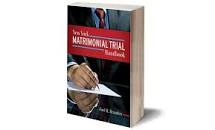
Practice Point - Effect of withholding Evidence in Your Possession, or Failure to Call a Witness
Where an adversary withholds evidence in his possession or control that would be likely to support his version of the case for which support is needed, the strongest inferences may be drawn against him which the opposing evidence in the record permits.[1]
The rule with respect to the drawing of an unfavorable inference from the failure to call a witness applies only to a person whom the party would naturally be expected to call, not to one known to be biased against or hostile to the party, or to a stranger to the party'.[2]
The finder of fact may not speculate as to what the witness would testify to had he or she been called. The rule is that the finder of fact may construe the evidence already in the case most strongly against the party who might have called the witness to contradict or explain that evidence.[3]
Where an adversary withholds evidence in his possession or control that would be likely to support his version of the case, the strongest inferences may be drawn against him which the opposing evidence in the record permits.[4]
The failure of a party to a civil action to testify as to matters of which he is or should be informed permits every inference warranted by the evidence introduced to be indulged against him.[5]
[1] Jarrett v. Madifari, 67 A.D.2d 396, 407.
[2] Jarrett v. Madifari, 67 A.D.2d 396, 407.
[3] Jarrett v. Madifari, 67 A.D.2d 396, 407.
[4] Perlman v. Shanck, 192 App. Div. 179; Milio v. Railway Motor Trucking Co., 257 App. Div. 640; Borman v. Henry Phipps Estates, 250 App. Div. 657; Noce v. Kaufman, 2 N.Y.2d 347, 353.
[5] Wolf v. Gold, 18 A.D.2d 987, 989.
Where an adversary withholds evidence in his possession or control that would be likely to support his version of the case for which support is needed, the strongest inferences may be drawn against him which the opposing evidence in the record permits.[1]
The rule with respect to the drawing of an unfavorable inference from the failure to call a witness applies only to a person whom the party would naturally be expected to call, not to one known to be biased against or hostile to the party, or to a stranger to the party'.[2]
The finder of fact may not speculate as to what the witness would testify to had he or she been called. The rule is that the finder of fact may construe the evidence already in the case most strongly against the party who might have called the witness to contradict or explain that evidence.[3]
Where an adversary withholds evidence in his possession or control that would be likely to support his version of the case, the strongest inferences may be drawn against him which the opposing evidence in the record permits.[4]
The failure of a party to a civil action to testify as to matters of which he is or should be informed permits every inference warranted by the evidence introduced to be indulged against him.[5]
[1] Jarrett v. Madifari, 67 A.D.2d 396, 407.
[2] Jarrett v. Madifari, 67 A.D.2d 396, 407.
[3] Jarrett v. Madifari, 67 A.D.2d 396, 407.
[4] Perlman v. Shanck, 192 App. Div. 179; Milio v. Railway Motor Trucking Co., 257 App. Div. 640; Borman v. Henry Phipps Estates, 250 App. Div. 657; Noce v. Kaufman, 2 N.Y.2d 347, 353.
[5] Wolf v. Gold, 18 A.D.2d 987, 989.
The material on our website is from the New York Matrimonial Trial Handbook , by Joel R. Brandes of the New York Bar. It focuses on the procedural and substantive law, as well as the law of evidence, that an attorney must have at his or her fingertips when trying a New York matrimonial action or custody case. It is intended to be an aide for preparing for a trial and as a reference for the procedure in offering and objecting to evidence during a trial. There are numerous questions for the examination and cross-examination of witnesses.
Joel R. Brandes Consulting Services, Inc. publishes The New York Matrimonial Trial Handbook . It is available in Bookstores, and online in the print edition at Amazon, Barnes & Noble, Goodreads and other online book sellers.
The New York Matrimonial Trial Handbook is available in Kindle ebook editions and epub ebook editions for all ebook readers in our website bookstore and in hard cover at our Bookbaby Bookstore.
The New York Matrimonial Trial Handbook is available in Kindle ebook editions and epub ebook editions for all ebook readers in our website bookstore and in hard cover at our Bookbaby Bookstore.
|
Joel R. Brandes Consulting Services, Inc.
2881 NE 33rd Court (At Dock) Ft. Lauderdale, Florida 33306. Telephone (954) 564-9883. email to:[email protected]. Joel R. Brandes Consulting Services, Inc is a Florida corporation which is owned and operated by
Joel R. Brandes of The New York Law Firm of Joel R. Brandes. P.C. |
This website is published by Joel R. Brandes Consulting Services, Inc., and written by Joel R. Brandes of The Law Firm of Joel R. Brandes. P.C. Mr. Brandes has been recognized by the Appellate Division* as a "noted authority and expert on New York family law and divorce.” He is the author of the treatise Law and The Family New York, 2d (9 volumes),Law and the Family New York Forms 2d (5 Volumes), Law and the Family New York Forms 2019 Edition (5 volumes)(Thomson Reuters), and the New York Matrimonial Trial Handbook. Click here to visit New York Divorce and Family Law ™ the definitive site on the web for New York divorce and family law, presented by Joel R. Brandes of the Law Firm of Joel R. Brandes, P.C., 43 West 43rd Street, New York, New York 10036. (212) 859-5079.
|